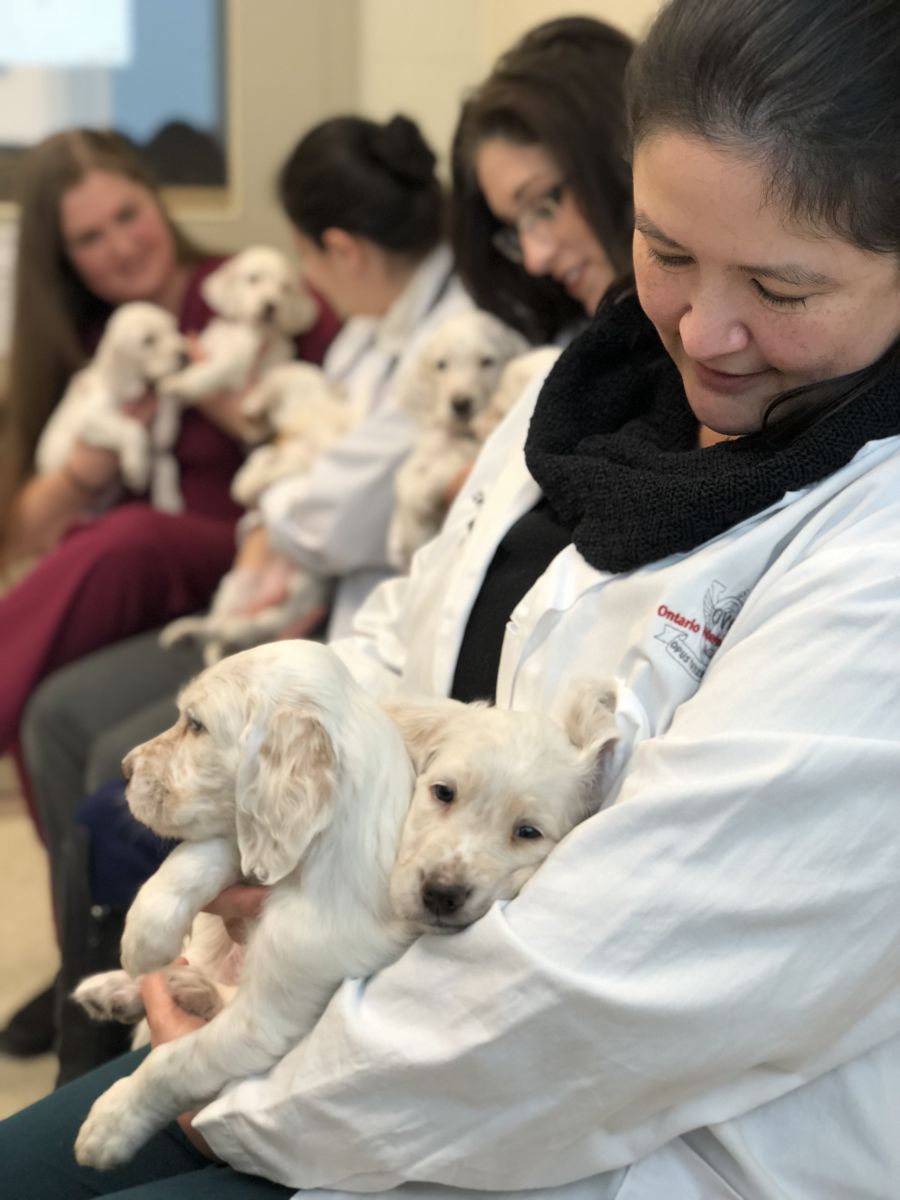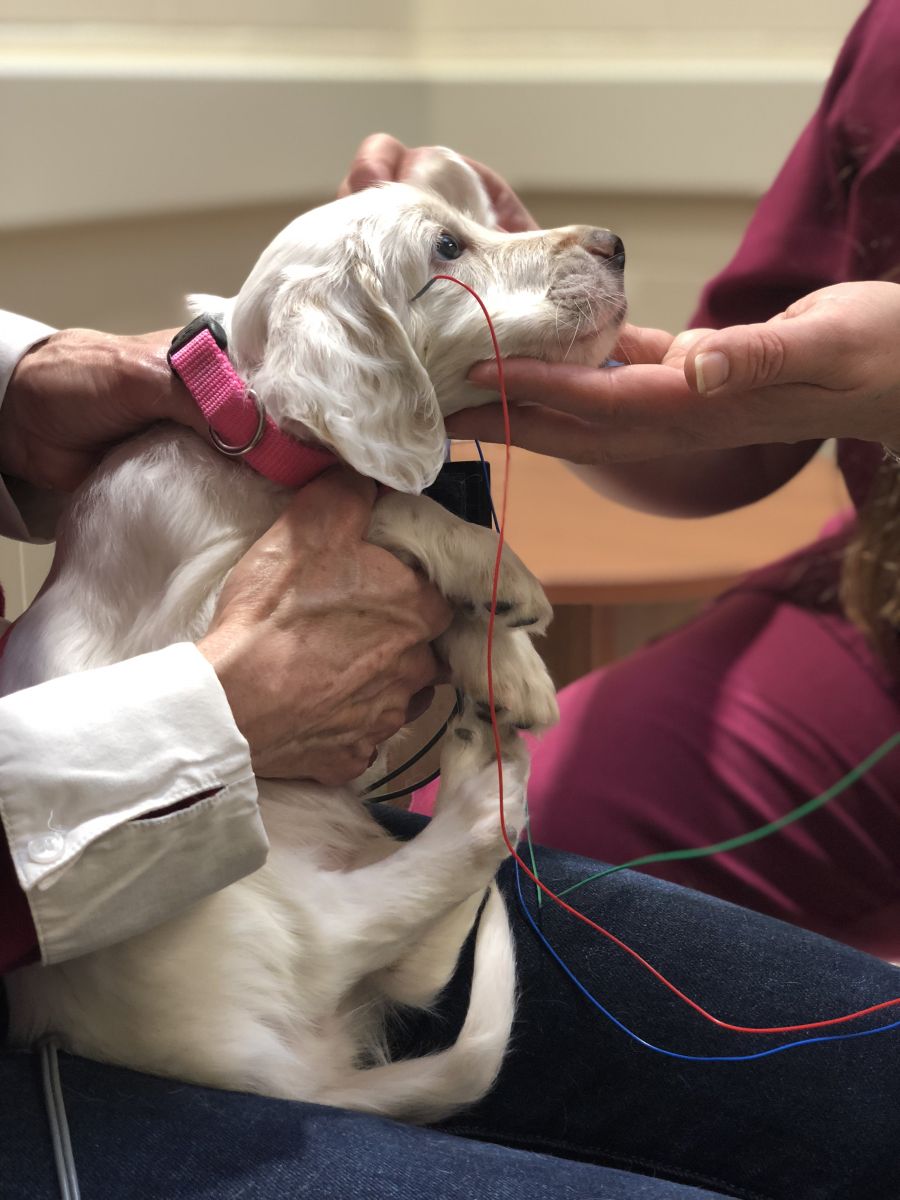Starting your puppy off on the right paw

New research shows early socialization is believed to be critical to the healthy development of puppies. Socializing puppies is most important between the ages of four and 16 weeks, and involves helping a new pet become comfortable in their new environment by introducing them to many different types of people, spaces and places, pets, noises, sights, sounds and smells in a positive and controlled way.
.jpg) Why is early puppy socialization important?
Why is early puppy socialization important?
Early puppy socialization is believed to be critical to the healthy development of puppies. Socializing puppies is most important between the ages of four and 16 weeks, and involves helping a new pet become comfortable in their new environment by introducing them to many different types of people, spaces and places, pets, noises, sights, sounds and smells in a positive and controlled way.
Poor puppy socialization can result in fear and sometimes aggressive behaviour in dogs. Behaviour problems are a leading cause of breakdown in the human-animal bond, the relationship and positive connection between pets and their owners. It is estimated up to 50 per cent of owners say behaviour issues are the main reason for sur- rendering or giving up their pet to either friends, families or shelters.
A recent study from the Ontario Veterinary College (OVC) found puppies who attended puppy classes at less than 20-weeks of age were less likely to develop negative behaviour patterns or fear responses to normal events such as noises like thunderstorms and vacuum cleaners, and every day experiences like being placed in a dog crate.
“One of the main recommendations for pet owners as a result of our study is to take the opportunity to discuss all aspects of puppyhood with your family veterinarian – they are uniquely positioned to help,” says Dr. Jason Coe, one of the study’s authors.
“The ‘puppy year’ can be both an exciting and challenging time for owners while puppies adjust to their new lives,” says Coe. “Family veterinarians are an important resource for pet owners and can provide valuable information on what activities are considered positive for puppy socialization, discuss timing and troubleshoot individual behaviour issues. They can help develop a positive reward-based training program and also answer questions about introducing a new puppy to children or other pets.”
There are many steps pet owners can take to start their new puppy off on the right paw.
Are you thinking of welcoming a new puppy into your home?
If you are contemplating adding a puppy to your home, it is important to understand what you are looking for and what your expectations are of your new pet. Research has shown that the success of a human-companion animal relationship is influenced by whether an owner’s expectations can be met by the dog and whether the needs and lifestyle of the owner and personality of the dog match. Owner expectations can relate to the time and effort required in caring for your dog (walks, training, veterinary visits), the role of the dog in the household (friend, protector) and the annual cost of owning a dog. Therefore, before choosing a new dog, it is beneficial to think about your schedule, your household members, living situation and the type of personality you would like your new dog to have.
.jpg)
Advice from the experts
If you have a new puppy or if you are considering a new four-legged addition to your home, OVC experts recommend considering the following:
• It’s important to remember that puppies have an optimal socialization period, during which it is imperative your new pet has positive exposure to new people, animals, experiences and locations. This socialization period ranges from the first four to 16 weeks of a puppy’s life.
• Positive exposure to different kinds of new experiences prepares puppies for the development of future social relationships and helps to prevent fear in new and unknown situations.
• Puppy classes provide an excellent opportunity for owner education and puppy socialization and a great way to avoid serious pet behavioural problems.
New pet checklist

Before deciding to get a new pet, it would be beneficial to consider a variety of factors including:
Your lifestyle
Time available to dedicate to your new pet
Species differences
Your current pet
Your new pet
Cost of pet ownership
Dr. Jason Coe is an OVC Pet Trust-funded researcher.
PHOTOS: Nancy Warner’s seven English Setter puppies, shown here, visited the Neurology Service at the Ontario Veterinary College in February for brainstem auditory evoked response (BAER) testing, an evaluation of the auditory pathway as sound is translated from the eardrum to the brainstem.
Puppy Sound Check
 The Neurology Service at the OVC
Health Sciences Centre specializes in providing advanced and emergency care to companion animals. The team sees and treats a wide range of disease and conditions in pets including epilepsy, spinal pain, weakness, gait changes, muscle and nerve disorders and a variety of congenital and degenerative nervous system diseases.
The Neurology Service at the OVC
Health Sciences Centre specializes in providing advanced and emergency care to companion animals. The team sees and treats a wide range of disease and conditions in pets including epilepsy, spinal pain, weakness, gait changes, muscle and nerve disorders and a variety of congenital and degenerative nervous system diseases.
One service in particular the Neurology team provides is hearing tests, or brain- stem auditory evoked response (BAER) testing. BAER testing is used to diagnosis deafness in pets. Registered Veterinary Technician (RVT) Jennifer Collins is in charge of administering the hearing test and normally sees up to 165 dogs per year.
Puppies are given this test between six and eight weeks of age, once their hearing is fully developed. Testing puppies for deafness is important because early identification allows owners to provide targeted training, improving comfort and safety for their dog, and allows them to be equipped with more information about how to interact with and help their dog navigate their world. Hearing tests are also available for older pets that may develop a loss of hearing as they age. When deafness is not an inherited or age related problem, loss of hearing may also be an indicator of other health issues, such as a brain tumour, infection or trauma.
Dogs can be diagnosed with deafness in both or just one of their ears. Dogs who are deaf can live a normal life by using their other senses, such as smell and sight, which are heightened. Dogs with hearing loss are best matched with an owner who is home more often and can provide a fenced backyard and dedicated time to training.
Read more in Best Friends Magazine.

